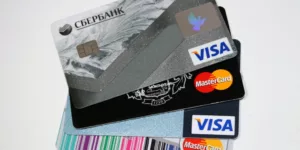Whether you are a business or an individual, credit cards are one of the most efficient ways to purchase goods and services. Credit cards can be used at a point-of-sale in lieu of cash or check. Understanding credit cards, and choosing the right card for you or your business, is crucial in using this type of payment wisely and safely. Here are three critical facts you should know about credit cards.
Types of Credit Cards

Most credit cards are “unsecured,” meaning they have no collateral associated with them. The credit card company determines an individual or business’s credit amount by gauging credit risk. Creditworthiness is determined by reviewing payment histories, credit scores, and income.
Many credit cards come with benefits like points and rewards for activities such as travel and dining, or cash back on purchases. Some credit cards have an annual fee. An annual fee usually corresponds to an increased quality or quantity of benefits, but, be sure to do the math to ensure that the fee is worth it.
Another benefit of a credit card is allowing business-to-business payments and transactions either on the phone or digitally. For a business, this significantly decreases the time spent managing payments and cash transfers to business partners.
Payments and Annual Percentage Rates
With 35 percent of a credit score coming from payment history, regular, on-time payments are critical for building and maintaining good credit. A missed payment will not only impact your credit score but more often than not will result in late fees from your credit card company.
Credit cards have an “Annual Percentage Rate” (APR), that is the interest rate that credit card holders are charged if they do not pay off their credit card each month. When choosing a card, research the range of APR’s to make sure you are getting a card with a reasonable rate. Many credit card companies will have an introductory rate that will last for three to six months and then increase.
Credit card companies will bill you for a “minimum amount due,” each month, which is a small percentage of your overall balance. Take care to not fall into the habit of paying only the minimum amount due, as the interest accrued over time will make a $5 cup of coffee charged on the credit card exponentially more expensive by the time it is paid off.
Credit Card Fraud
Credit card fraud is increasingly prevalent, with hackers gaining access to credit card numbers and charging purchases online. Be sure to review each monthly statement for any signs of fraudulent activity, and report it immediately. Most reputable credit card companies will have a policy in which you are not liable for fraudulent charges when reported in a timely manner. If your credit card company offers fraudulent warning alerts, sign up for them. When the company suspects a fraudulent charge, you will receive a phone call, email, or text message to let you know.
Credit cards are a convenient way to purchase goods and services for an individual or business. By choosing the right card for you, making regular payments, and monitoring for fraudulent activity, a credit card can help make life simpler.








